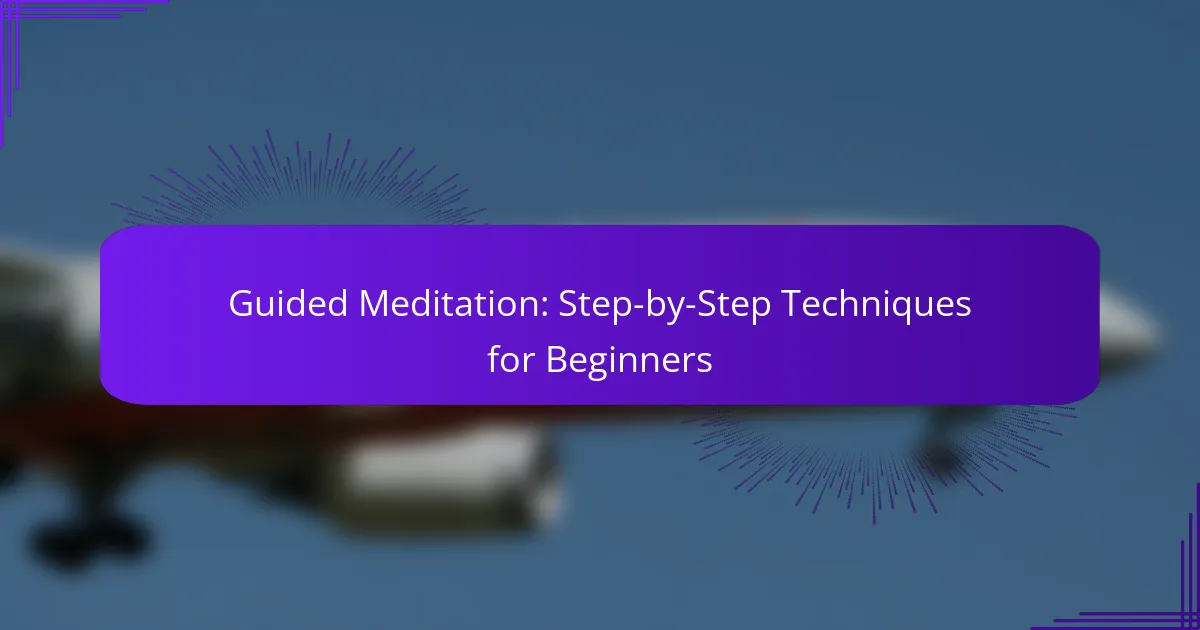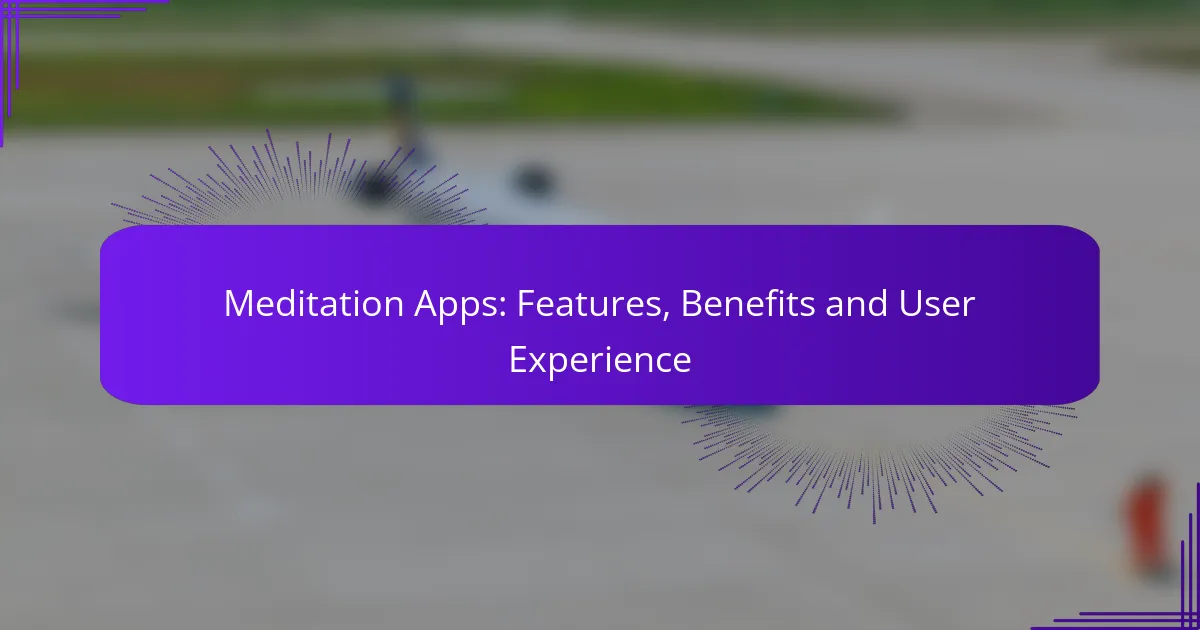For busy professionals, incorporating meditation into daily routines can significantly enhance focus and reduce stress. By dedicating just a few minutes each day to short meditation sessions, individuals can improve their productivity and mental clarity, making it easier to navigate the demands of a hectic schedule.
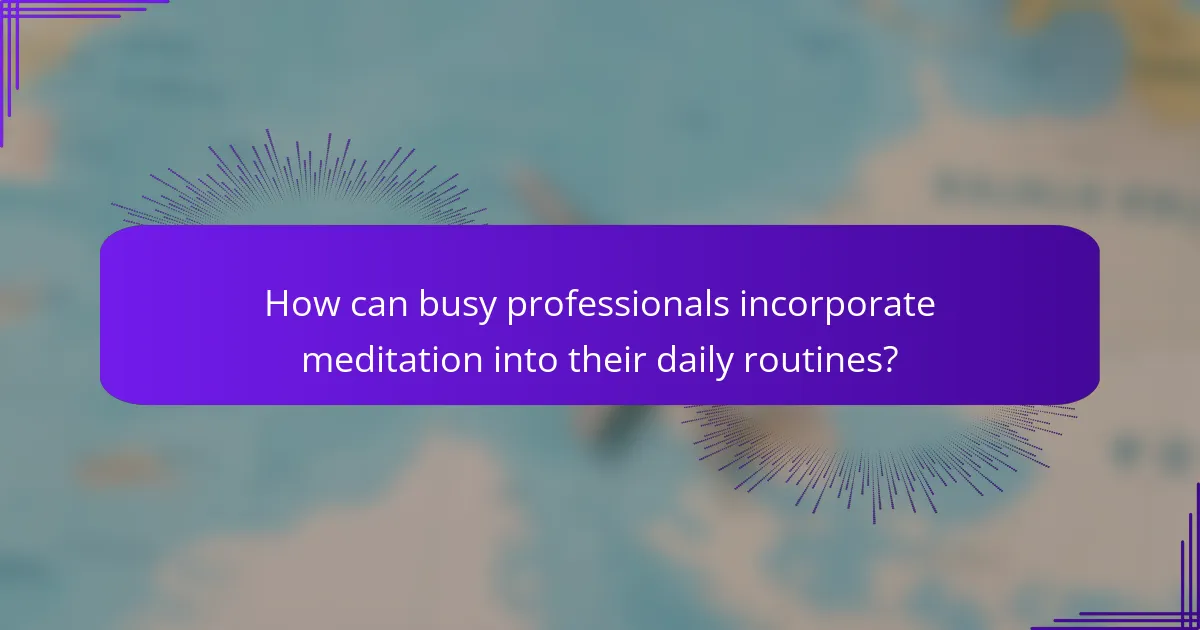
How can busy professionals incorporate meditation into their daily routines?
Busy professionals can effectively incorporate meditation into their daily routines by allocating specific times for practice, even if only for a few minutes. By integrating short sessions into their mornings, breaks, and evenings, they can enhance focus and reduce stress throughout the day.
Morning meditation sessions
Starting the day with a morning meditation session can set a positive tone for busy professionals. A duration of just 5 to 15 minutes can help clear the mind and improve concentration for the tasks ahead.
To implement this, professionals can wake up slightly earlier and find a quiet space. Using guided meditation apps can provide structure and make it easier to maintain consistency.
Short breaks for mindfulness
Incorporating short breaks for mindfulness throughout the workday can significantly enhance productivity. Taking 2 to 5 minutes to practice deep breathing or mindful observation can help reset focus and reduce stress.
Professionals can schedule these breaks between meetings or tasks. Simple techniques, like focusing on breath or engaging in a brief body scan, can be effective and require minimal time.
Evening reflection practices
Evening reflection practices allow busy professionals to unwind and process the day’s events. Spending 5 to 10 minutes reflecting on accomplishments and challenges can promote a sense of closure and prepare the mind for rest.
Journaling or meditative breathing can be effective methods for evening reflection. Creating a calming environment, such as dimming lights or using soothing scents, can enhance the experience and encourage relaxation before sleep.
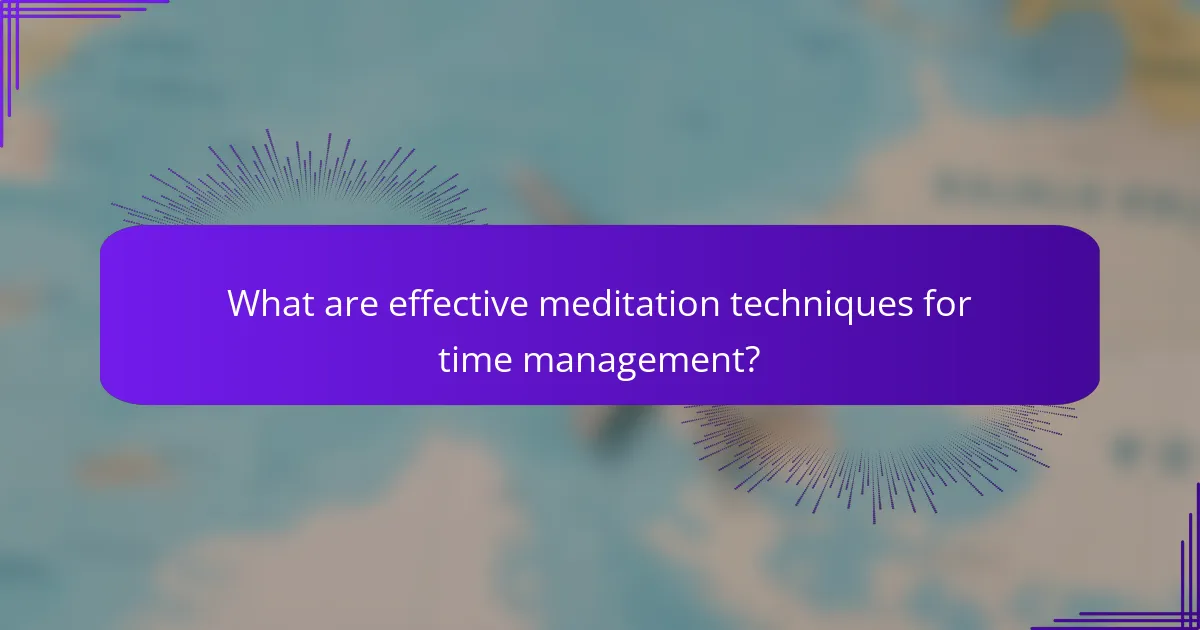
What are effective meditation techniques for time management?
Effective meditation techniques for time management help busy professionals enhance focus and reduce stress, allowing for better productivity. These methods can be easily integrated into a hectic schedule, requiring only a few minutes each day.
Guided meditation apps
Guided meditation apps provide structured sessions led by experienced instructors, making them ideal for those new to meditation. Popular options include Headspace, Calm, and Insight Timer, which offer various themes and durations, typically ranging from 5 to 30 minutes.
When choosing an app, consider your specific needs, such as stress relief or improved concentration. Many apps offer free trials, so you can explore different styles before committing to a subscription.
Mindfulness breathing exercises
Mindfulness breathing exercises focus on the breath to anchor your attention and promote relaxation. Simple techniques, such as the 4-7-8 method, involve inhaling for four seconds, holding for seven, and exhaling for eight seconds, which can be done in just a few minutes.
Incorporate these exercises into your daily routine, perhaps during breaks or while commuting. Regular practice can significantly enhance your ability to manage stress and maintain focus throughout the day.
Body scan meditation
Body scan meditation involves mentally scanning your body from head to toe, promoting awareness of physical sensations and tension. This technique can take anywhere from 10 to 30 minutes and is particularly effective for reducing stress and improving relaxation.
To practice, find a quiet space, lie down comfortably, and focus on each part of your body, noticing any tension or discomfort. This practice can be a powerful tool for busy professionals to reconnect with their bodies and relieve stress during a hectic workday.
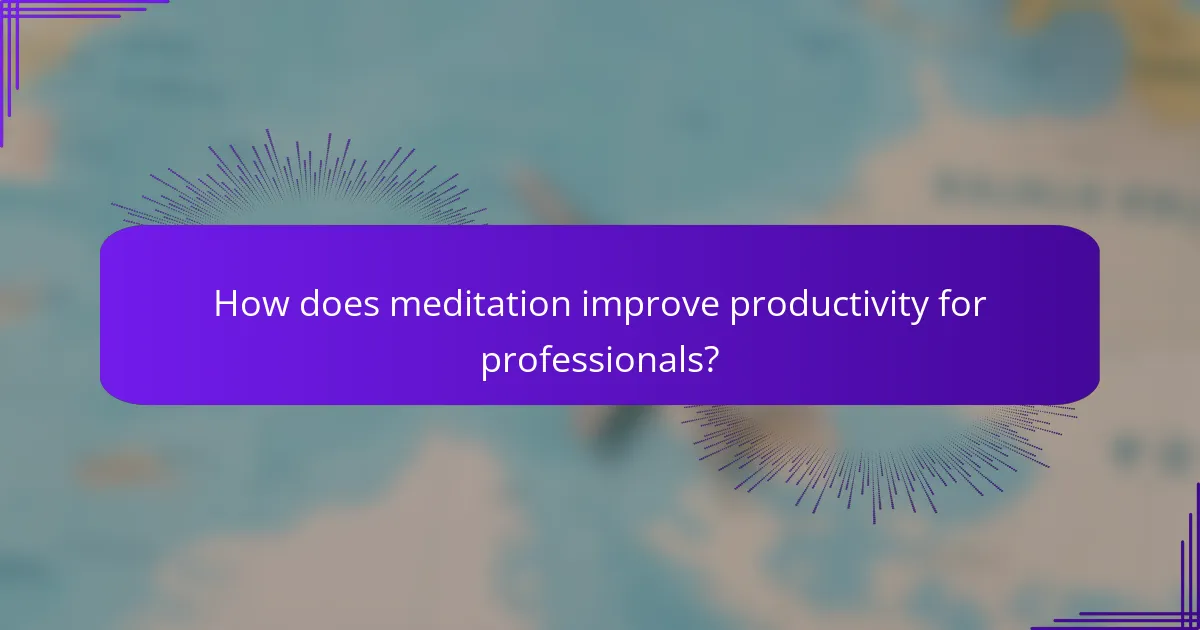
How does meditation improve productivity for professionals?
Meditation enhances productivity for professionals by fostering mental clarity and emotional resilience. Regular practice can lead to better focus, reduced stress, and improved decision-making, all of which are crucial for maintaining high performance in demanding work environments.
Enhanced focus and concentration
Meditation trains the mind to focus on the present moment, which can significantly enhance concentration. Techniques such as mindfulness meditation encourage practitioners to observe their thoughts without judgment, helping to minimize distractions during work tasks.
For busy professionals, dedicating just a few minutes daily to meditation can lead to noticeable improvements in attention span. Simple practices, like focusing on breath for 5-10 minutes, can help reset mental clarity and boost productivity throughout the day.
Reduced stress levels
Regular meditation practice is linked to lower stress levels, which is vital for professionals facing tight deadlines and high-pressure situations. By promoting relaxation and reducing cortisol levels, meditation helps create a calmer mindset.
Incorporating short meditation sessions into the workday can serve as a powerful tool for stress management. Techniques such as guided imagery or progressive muscle relaxation can be effective, requiring only 10-15 minutes to yield benefits.
Improved decision-making
Meditation can enhance decision-making skills by fostering a clearer and more objective mindset. When professionals meditate, they often experience improved emotional regulation, allowing them to approach decisions with greater clarity and less bias.
Practicing meditation can lead to quicker and more effective problem-solving. For instance, taking a brief meditation break before making significant decisions can help professionals evaluate options more rationally, ultimately leading to better outcomes in their work.
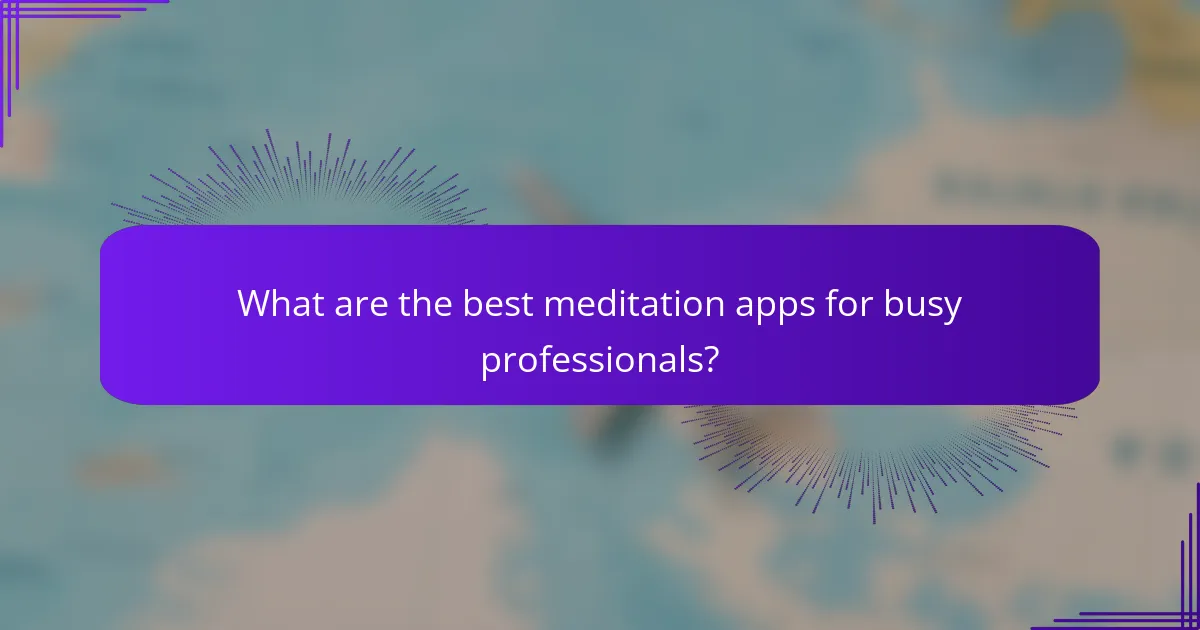
What are the best meditation apps for busy professionals?
The best meditation apps for busy professionals are designed to fit seamlessly into a hectic schedule, offering quick and effective mindfulness practices. These apps typically provide guided sessions, timers, and progress tracking to help users integrate meditation into their daily routines.
Headspace
Headspace is a popular meditation app that offers a variety of guided sessions tailored for busy individuals. Users can choose from short meditations lasting just a few minutes to longer sessions, making it easy to find time for mindfulness throughout the day.
The app features themed courses on topics like stress, focus, and sleep, allowing professionals to address specific needs. Headspace also includes animations and engaging content to enhance the learning experience.
Calm
Calm is another excellent choice for busy professionals, providing a wide range of meditation options, sleep stories, and soothing music. The app’s user-friendly interface allows users to quickly select sessions based on duration and focus area, accommodating even the tightest schedules.
With sessions that can be as short as three minutes, Calm makes it easy to incorporate mindfulness into daily life. The app also offers features like daily reminders to encourage consistency in practice.
Insight Timer
Insight Timer stands out for its extensive library of free guided meditations and a large community of users. Professionals can explore thousands of sessions led by various teachers, catering to different styles and preferences.
This app allows users to customize their meditation experience by setting timers, choosing background sounds, and tracking their progress. Insight Timer is particularly beneficial for those who prefer a flexible approach to meditation without the pressure of a structured program.
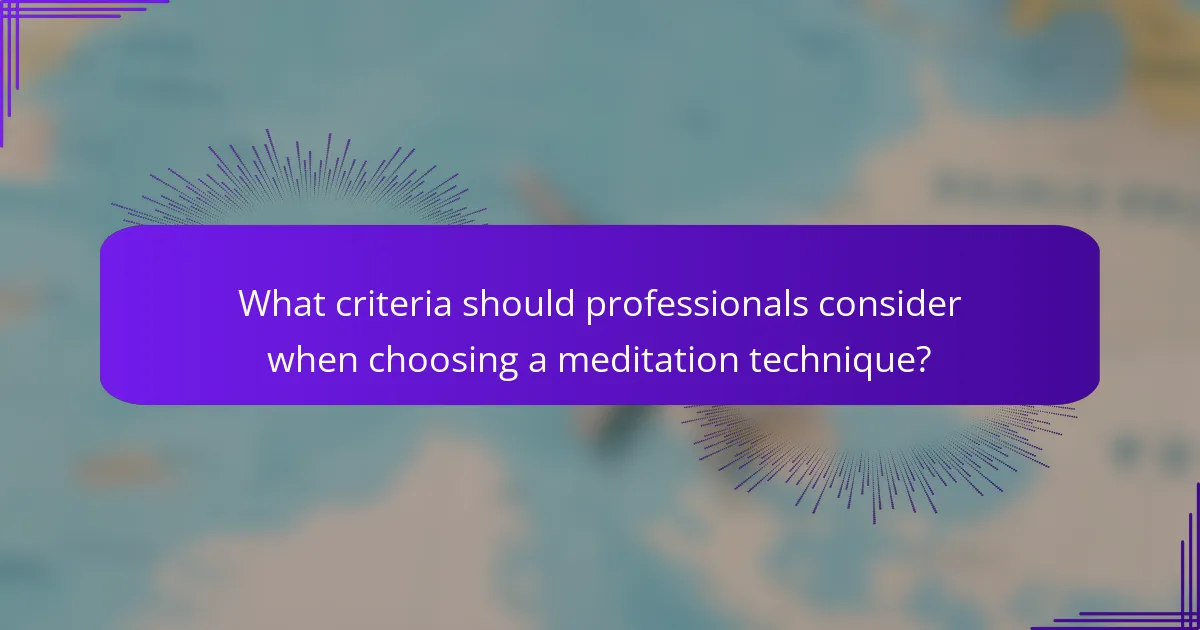
What criteria should professionals consider when choosing a meditation technique?
Professionals should consider time commitment, personal preferences, and accessibility of resources when selecting a meditation technique. These factors ensure that the chosen method fits seamlessly into a busy lifestyle while providing effective stress relief and mental clarity.
Time commitment
Time commitment is crucial when choosing a meditation technique, especially for busy professionals. Techniques can range from quick 5-minute sessions to longer practices of 30 minutes or more. Assess how much time you can realistically dedicate each day to find a method that won’t feel burdensome.
For instance, if your schedule is tight, consider mindfulness exercises or guided meditations that can be completed in short bursts. This allows you to integrate meditation into your daily routine without significant disruption.
Personal preferences
Your personal preferences play a significant role in selecting a meditation technique. Some individuals may prefer guided meditations, while others might find silent meditation or movement-based practices like yoga more appealing. Understanding what resonates with you can enhance your commitment and enjoyment.
Experiment with different styles to discover what feels most comfortable. For example, if you enjoy nature, outdoor meditation could be a great fit, whereas those who prefer structure might benefit from app-based guided sessions.
Accessibility of resources
Accessibility of resources is another important factor to consider. Evaluate what tools or environments you have available for meditation. This includes access to apps, online courses, or local classes that can support your practice.
For busy professionals, utilizing mobile apps can be an effective way to practice meditation anywhere, whether at home or during breaks at work. Ensure that the resources you choose fit within your budget and are easy to incorporate into your daily life.

